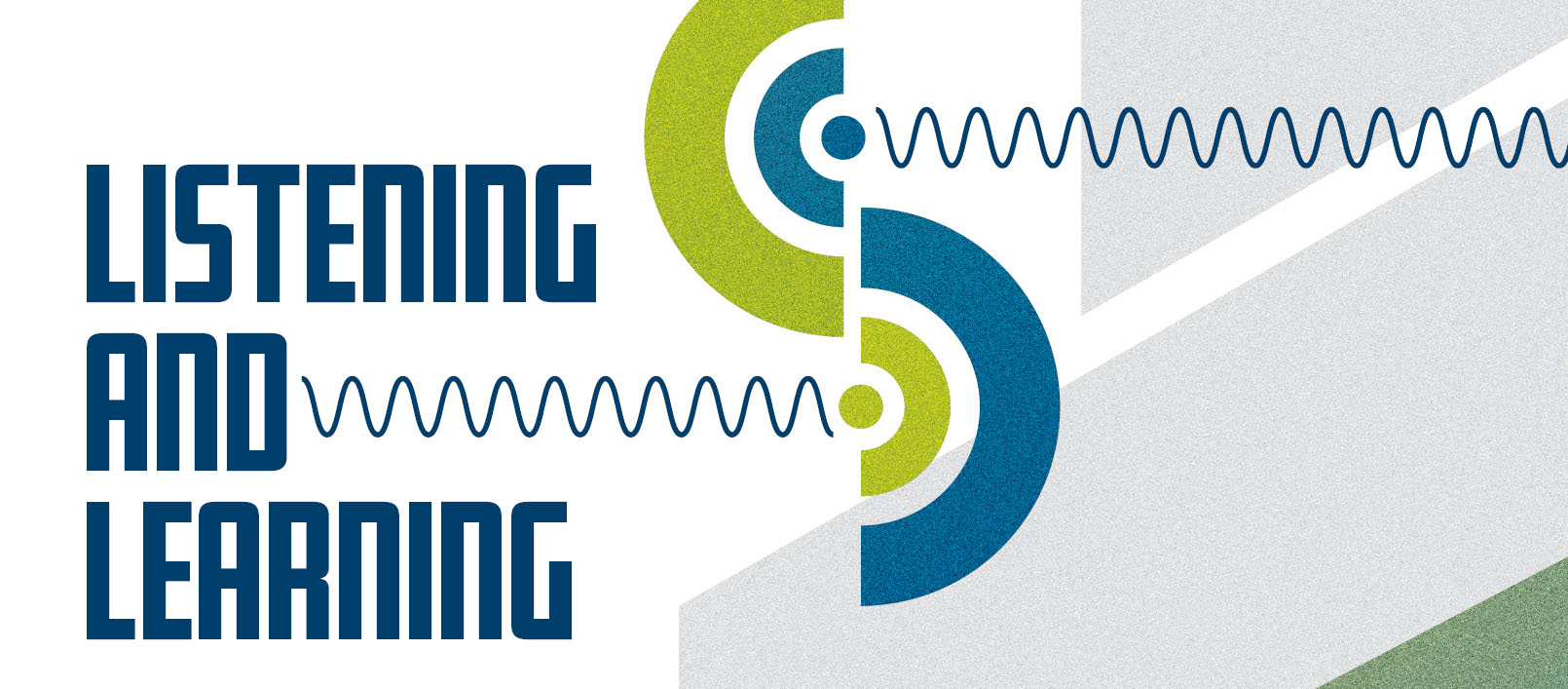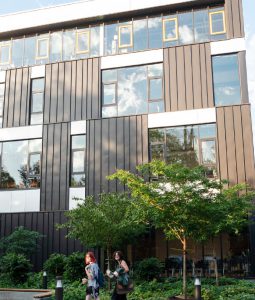
By Wendy Lawrence, Inspire Contributor
Stepping back onto the Eastside Prep campus felt like coming home. Almost every inch of every building was different from when I taught here, but the feeling was the same. I felt immediately welcomed by the entire community—adults who remembered me and kids who never knew me made me feel equally at home—there’s just a sense of belonging when you show up here. EPS has this amazing culture that you can feel when you walk through it.
I came back to do a case study on this awesome place for my dissertation. Four years into my PhD and almost fifteen years after leaving the school, I was equipped with a whole new set of experiences with which I was excited to reexamine my favorite school. My dissertation work focused on the connections within school organizational structure—looking for those boundaries and bridges that divide and connect school communities. I was so excited to study these issues in a place where I knew walls were purposefully torn down (often literally as well as metaphorically!!!), and bridges and relationships were constantly built and nurtured.
I was not disappointed. Listening to my research dialogues, where I partnered two random participants together to talk for two one-hour sessions, I saw in real time how welcoming EPSers are to new ideas, often asking their dialogue partners to expand on ideas and stories, genuinely interested in learning from each other’s experiences. I loved watching school leaders listen intently to student ideas and students comfortable enough with school leaders to question them further. Teachers and parents conversed in true partnership, opening up their hearts and talking about their dreams for the kids in our community.
 When I taught at EPS, one of my favorite things was teaching an interdisciplinary unit—I believe the thinking patterns required for interdisciplinary work really underscore creativity and the power of critical thought. I noticed during my recent research how teachers and leaders at EPS use these interdisciplinary lenses to really reflect on their work. And each discipline is so aware of the value of the other disciplines—it’s not a place where everyone is fighting for time with the kids, it’s a place where everyone values the different ways students interact with the school and with their own learning.
When I taught at EPS, one of my favorite things was teaching an interdisciplinary unit—I believe the thinking patterns required for interdisciplinary work really underscore creativity and the power of critical thought. I noticed during my recent research how teachers and leaders at EPS use these interdisciplinary lenses to really reflect on their work. And each discipline is so aware of the value of the other disciplines—it’s not a place where everyone is fighting for time with the kids, it’s a place where everyone values the different ways students interact with the school and with their own learning.
But I think the part about EPS that will always stand out the most is how ready they always are to learn and change. When things came up in conversations that were critiques, school leaders asked follow-up questions and leaned into the process of learning: “What could we do differently? How is this affecting you? What do you need from us?” In fact, just allowing me on campus to set up these conversations was a part of the way school leadership is so reflective.
I remember in the very early days of the school when a family left to go elsewhere, the school would always sit down and listen first. The goal wasn’t to try to talk them into staying—it was very much to listen and learn. That ability to be self-reflective has powered this school through twenty years of intense growth and meaningful innovation. EPS has always been a living organization, and like a wild organism, it has adapted and evolved to not only survive but also to build its own niche in which to live and learn and teach and thrive.
Opportunities to Gather and Reflect
By Sam Uzwack, Head of School-elect
Wendy’s thesis was a great opportunity for Eastside Prep and it came at a perfect time—the school’s twentieth anniversary is an ideal year for listening to our community, learning their thoughts, and reflecting on our own practices. And no one is more equipped for that work than Wendy, who already knows so much about our community and its origins and remains connected to us even after leaving the area. But our listening and self-reflection did not end with Wendy’s efforts. Other in-depth opportunities arose within the last year:
HEAD OF SCHOOL SEARCH COMMUNITY SURVEY
Results from this survey reaffirmed the community’s commitment to our vision and mission and indicated that EPS is on the right
path to the future.
FACULTY/STAFF LISTENING GROUPS
Multiple sessions were conducted to hear from our employees about what is essential about EPS culture, what challenges we face, and how to improve the program moving forward.
MEETINGS WITH SENIOR ADVISORIES
I met with each advisor group and poised the question, “When you return in five years, what about EPS must persist? What would you like to see changed or added?” As one would expect, our seniors provided thoughtful and meaningful feedback on their experience. No surprise, strength of community rose to the top of the list.
PROFESSIONAL DEVELOPMENT DAYS WITH DR. HEATHER CLARK, UW ANTHROPOLOGIST
During three of our Professional Development Days this year, the faculty/staff is working with Dr. Clark to “interrogate” EPS culture, in order to understand the strengths and blind spots of our school. As of this writing, we have just hosted Heather’s second visit to campus.

